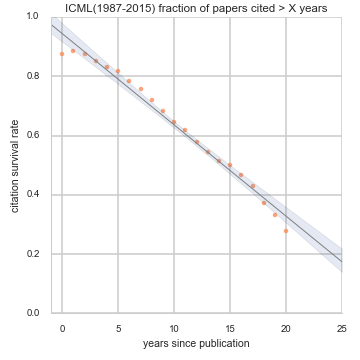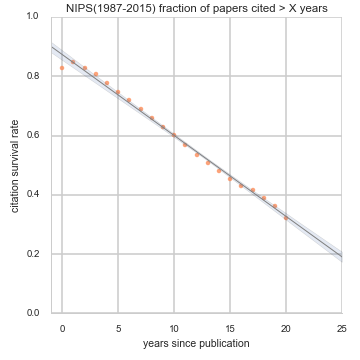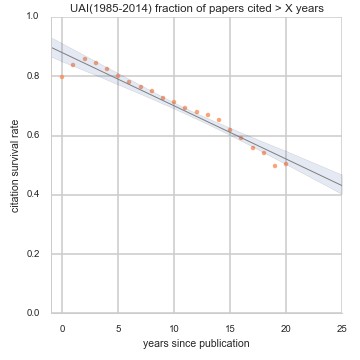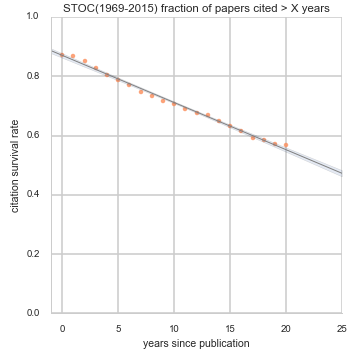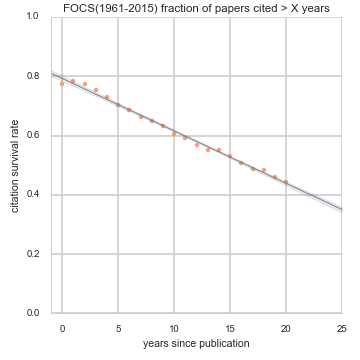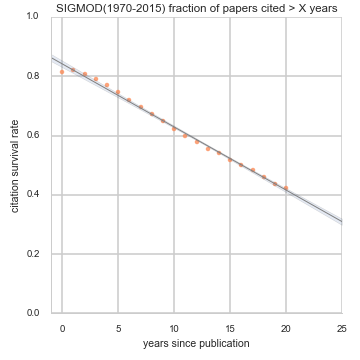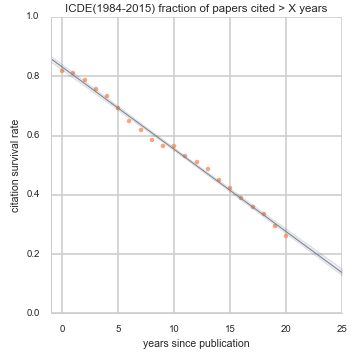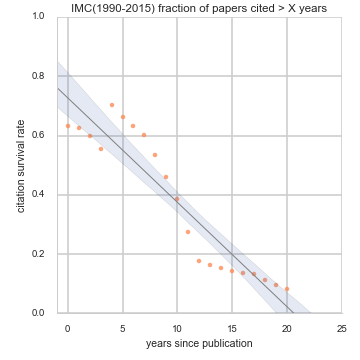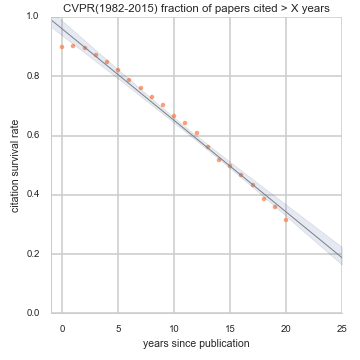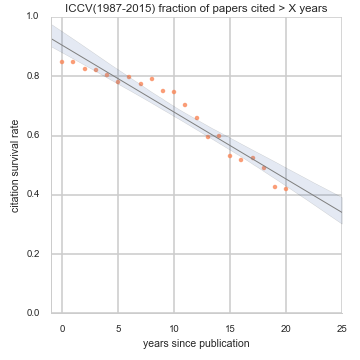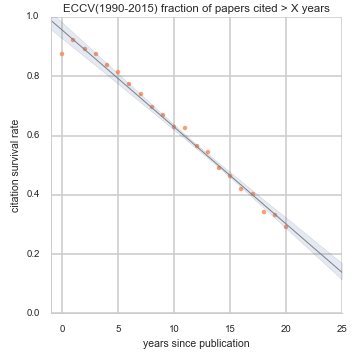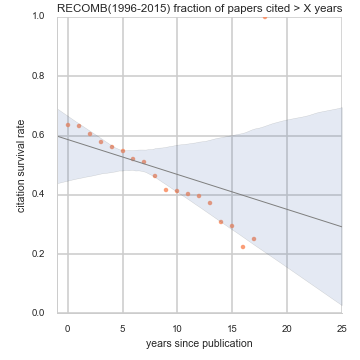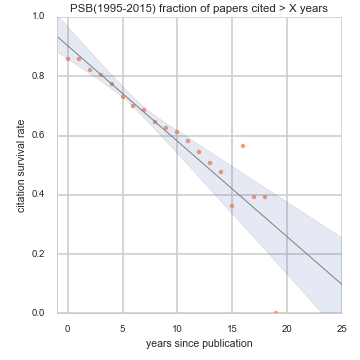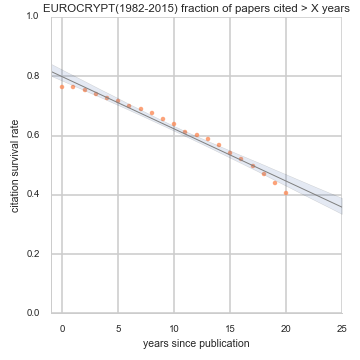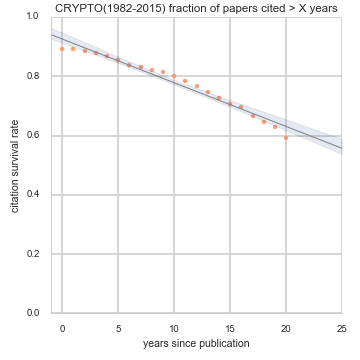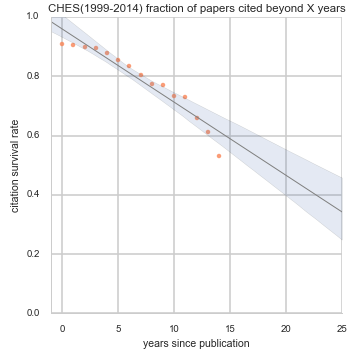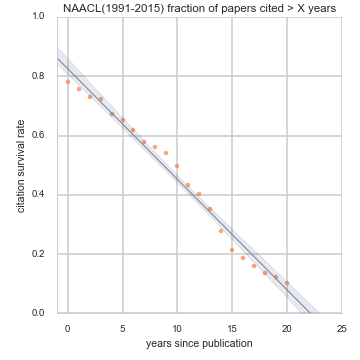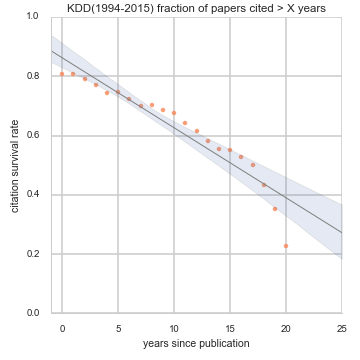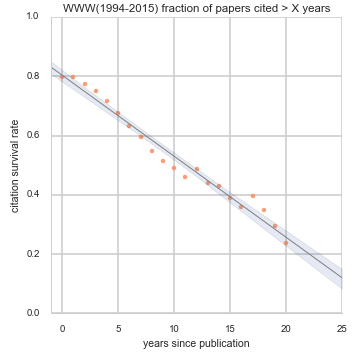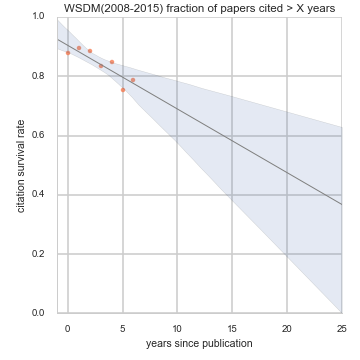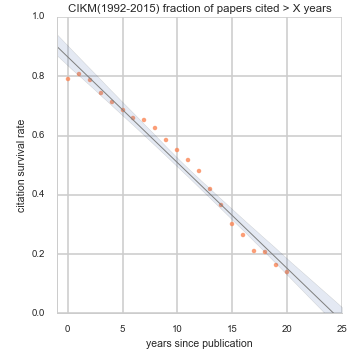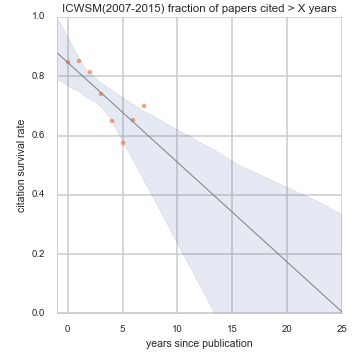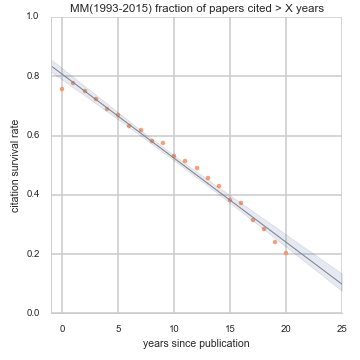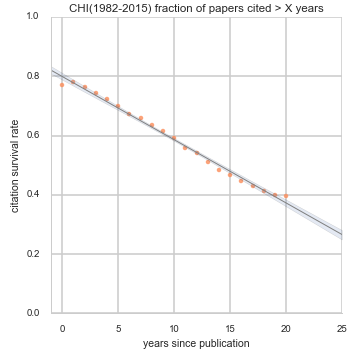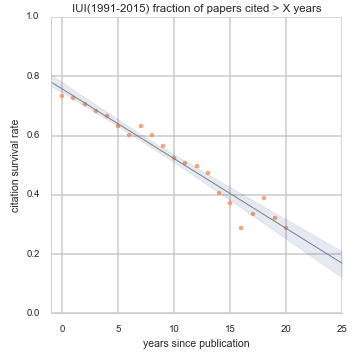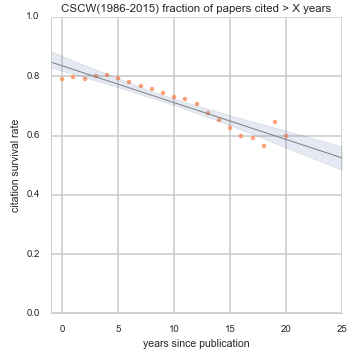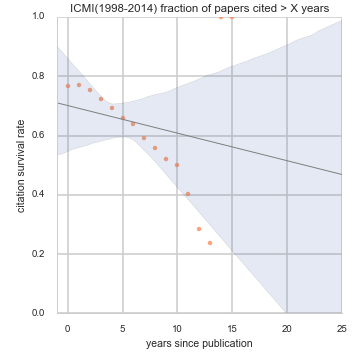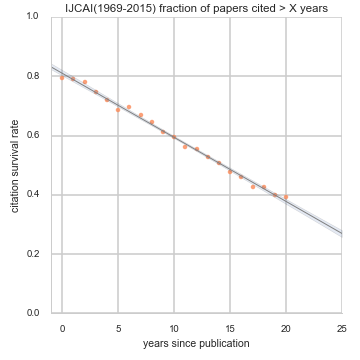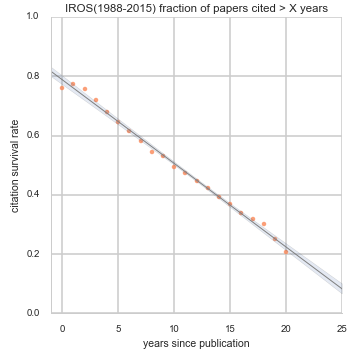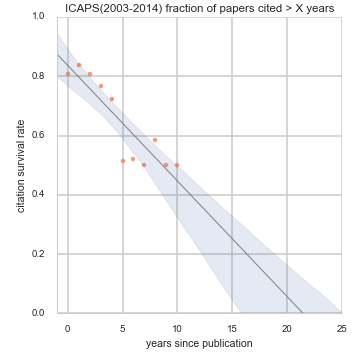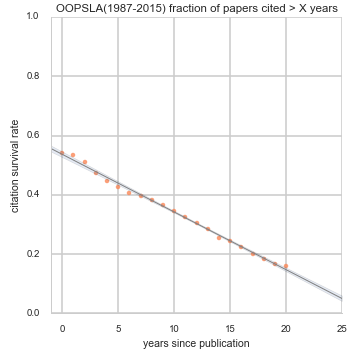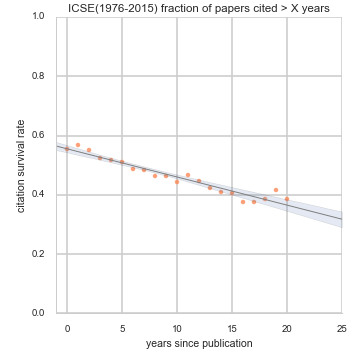posted by Lexing Xie
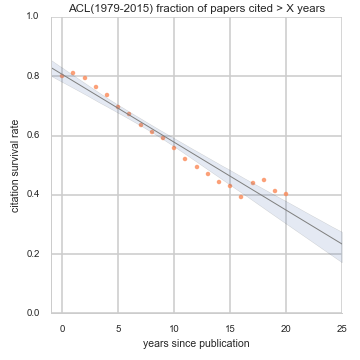
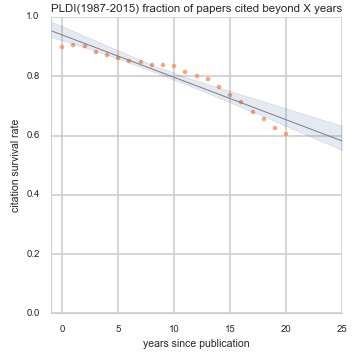
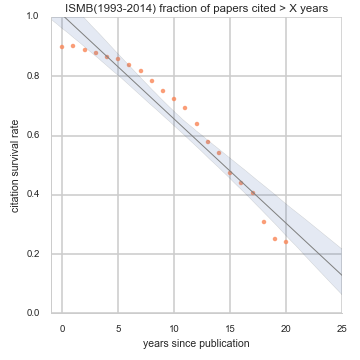
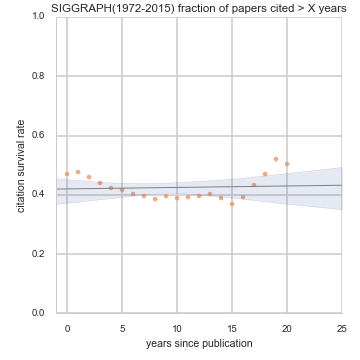
This is the overview page for the citation survival rate of many computer science conferences, using data from microsoft academic graph. For a general discussion of data process, and why we are doing this, see the overview blog post. For other visualizations on this dataset, see the citation flow summary page, or details about individual conferences below.
Left to right above: ACL on natural language processing, PLDI on programming language design and implementation, ISMB on bioinformatics, and SIGGRAPH on computer graphics.
FAQ
- How is citation survival computed? It is the fraction of papers from a conference that are cited at least once more than X years after publication. This plot and its name was coined and first implemented for ACL by Jacob Eisenstein.
- Should survival rates decrease as papers age? or, is there a bug in SIGGRAPH data? Survival rates do not necessarily decrease, since both the denominator (# of papers with age X and above) and the numerator (# of papers cited with the above) get smaller as we look at older papers. So there is no bug for SIGGRAPH, for 20 years, 635 papers cited 5 year+ out of a total of 1257, 50%; and for 5 years, 3820 papers cited 5 year+ out of a total of 9159, 42%. Or as one may say: older SIGGRAPH papers are arguably doing better than newer ones overall.
- Why are the results different? The plot by Jacob show a 20-year survival rate of 20%, but yours show 40% for ACL? The source of citation data are different. The plot by Jacob counts citations to ACL papers from papers within ACL Anthology (i.e. within the natrual language processing community), but data in this analysis include citations by all academic publications (as tracked by MAG). In other words, after 20 years, 20% of ACL papers are only cited from outside its own community – this is quite good!
Show me the plots
You can either browse through a list of all conferences, or navigate using the conference list grouped by topical area below.
Machine learning
Natural Language processing
Human Computer Interaction
AI, robotics, planning
CS theory
Databases
Communications and networks
Programming language and software
Computer vision
Signal and speech processing
ICASSP - International Conference on Acoustics, Speech, and Signal Processing (1976-2015)
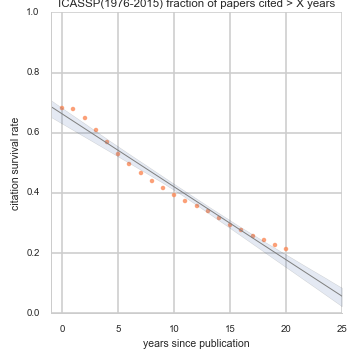
| <td>
<a href=https://cmlab.dev/citation/INTERSPEECH>
INTERSPEECH - Conference of the International Speech Communication Association (1988-2016)
<img align=center width=250 src="/img/citation/INTERSPEECH/INTERSPEECH_citation_survival.png">
<a>
</td>
<td>
<a href=https://cmlab.dev/citation/ISIT>
ISIT - International Symposium on Information Theory (1973-2015)
<img align=center width=250 src="/img/citation/ISIT/ISIT_citation_survival.png">
<a>
</td>
Distributed computing
Cryptography and systems
